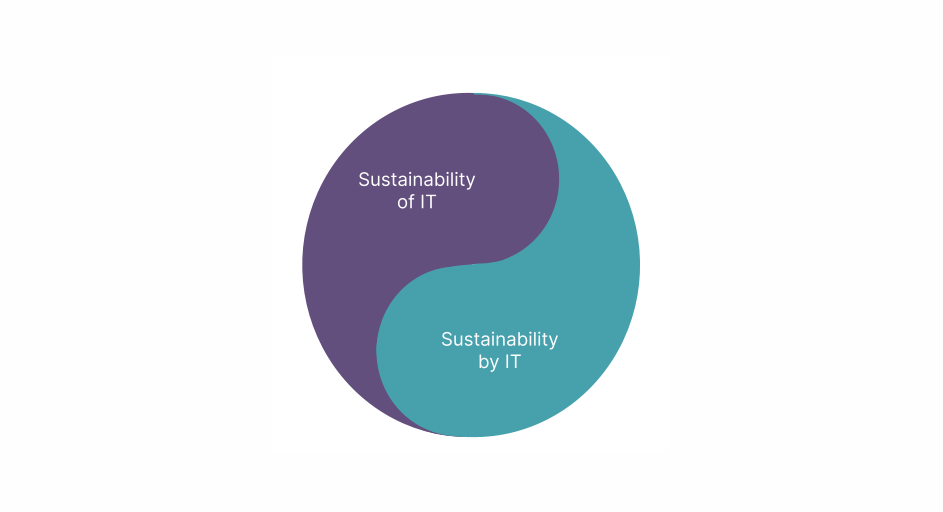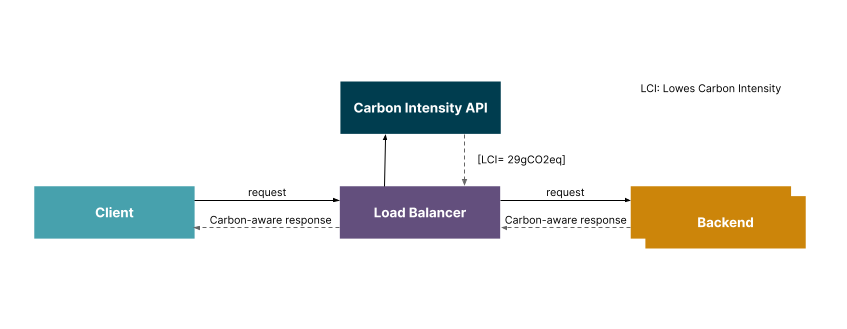In the past few months a lot has happened inside our sustainability solutions offering. Given the urgency of the climate crisis, we wanted to share what we’ve been doing — taken together, it has all helped build a strong foundation for us to continue our mission into 2023.
First, a bit of context.
Our conceptual framework
Sustainability and IT are converging into what is being called “green tech”, “clean tech”, or “sustainable tech”. Beyond the nuances of each of those definitions, the industry has — perhaps naively — used them interchangeably. This is unfortunate and can cause confusion in this particular field. In the energy industry, for example, the terms “clean energy” and “green energy” mean very different things.
To overcome these issues, “sustainable tech” is our term of choice. Although this is a broad term, it encapsulates a range of different things that are all important in this space. We consider it to be the patterns, principles, and practices that are emerging to address carbon efficiency and awareness concerns in the design and implementation of digital technologies.


With that term in place, we can then begin to dig deeper and break it down into two different buckets or categories of work.
Sustainability of IT
The Sustainability of IT refers to optimizing performance in a way that minimizes the environmental impact of software. For example, the choice of a programming language, toolkit, the cloud region where we deploy, can all have implications for energy consumption — and, by extension, carbon emissions as well.
Sustainability by IT
A complementary approach is Sustainability by IT. In this category we want to employ tools and techniques to assess and then optimize aspects of real world processes. As an example, we could use machine learning models to discover pain points in a physical supply chain and recommend optimization strategies for them.
This holistic view deepens our knowledge and understanding of the relationship between technology and sustainability and draws our attention to the environmental impact of digital infrastructure — which is believed to be getting close to that of the aviation industry.
Close collaboration with the Green Software Foundation
As a co-founding member of Green Software Foundation (GSF), Thoughtworks is actively participating in its mission to reduce the carbon emissions of software; it’s one of our largest collaborative initiatives across multiple regions for 2023. One of the latest developments Thoughtworks was involved in was the Carbon Hack ‘22, in which we presented multiple ideas as a company: these included Capybara, a GitHub Action used to automatically reschedule workflow runs depending on the most carbon efficient time, and Kubernetes extensions that bring carbon awareness to your Kubernetes workloads.
One idea that I was particularly enthusiastic about was Carlo, a carbon aware load balancer. The aim behind it was to make it possible to replace a traditional load balancing algorithm e.g. round robin with one that would account for carbon intensity data to route traffic.


By implementing it the load balancer can select the server with the lowest carbon intensity i.e. the region which is using the greenest electricity to power their cloud servers.
This naive experiment, which abstracts away complex networking and cloud implementation details, allows the community not only to build on top of it but to understand the concept of carbon-awareness in this particular niche of distributed computing.
Getting value out of Clean Tech Services
Last but not least, we have heavily invested in bringing this set of techniques to our colleagues. Sustainability is rapidly becoming an important part of Thoughtworks’ consultants value proposition. Our clean tech leadership is shaping this with multiple different initiatives that are being periodically executed across all of our offices globally. These include workshops, lunch and learns, thought leadership and training.
In the same spirit, we have helped several clients determine their sustainability strategy. They trust that our deep and broad experience in agile software development can facilitate transformative change. A recent client that called us in for this matter is already exploring ways to implement a sustainability roadmap after we ran a Green Cloud Optimization workshop for their engineering workforce.
Understanding, developing and extracting value from clean tech is a major initiative that we are moving forward and bringing to clients and partners.
To 2023 and beyond
COP27 took place in November; the environmental outlook remains grim. I seriously think that this is the most difficult challenge humankind will face in this century, and it won’t be solved by technology alone. Nonetheless, business as usual without a sustainability approach is not a prerogative anymore for modern digital businesses that want to compete in the next stage of digital capitalism. It’s with that insight that the team at Thoughtworks Spain is doubling down in its decarbonization journey, and continuing in its commitment to help our clients perform due diligence in terms of carbon accountability.
For that, I encourage you to revisit your assumptions in your business regarding sustainability. There is plenty that can be done in an agile and iterative way to start taking action on it. Companies usually have different motivations and interests as to why to start this journey, ranging from optimizing IT processes and infrastructure costs to making executive decisions incorporating sustainability metrics. It also shouldn’t be seen as something that can only be done by technologically mature organizations: there are practices, activities and initiatives that can be done by organizations of all types and sizes. So, while sustainability technologies are beginning to consolidate in a way that makes it possible to achieve these goals, the real challenge is steering the cultural change needed to get these initiatives going.
Be a leader with the confidence to stand at the forefront of change; start your sustainability transformation journey now.
Disclaimer: The statements and opinions expressed in this article are those of the author(s) and do not necessarily reflect the positions of Thoughtworks.


















